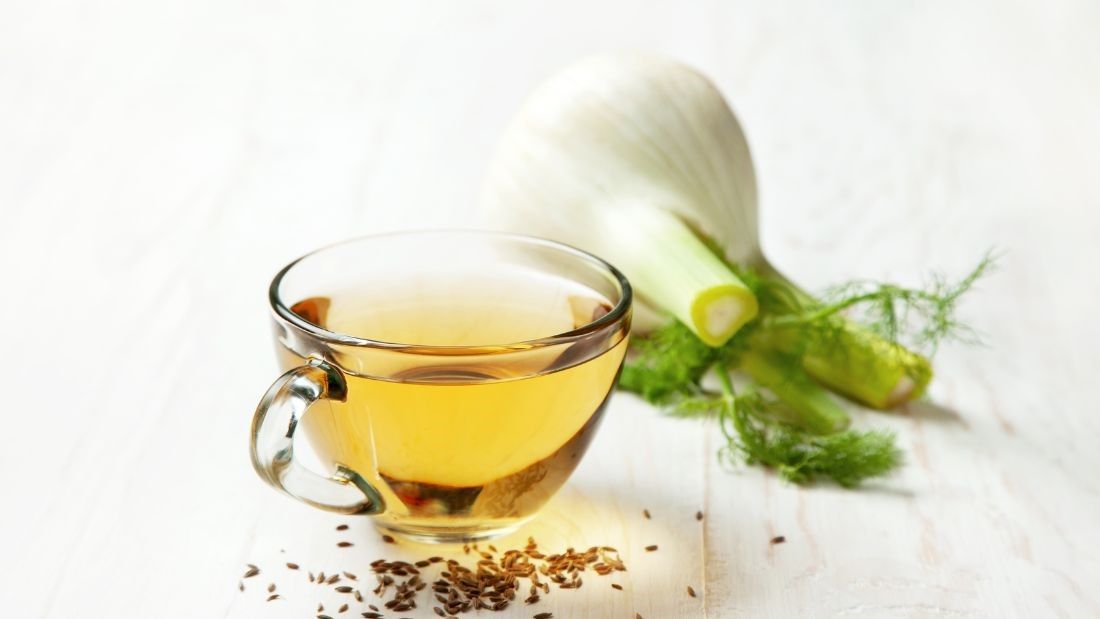How to relieve digestive discomforts

What works best for nausea, bloating, indigestion or diarrhoea?
When your tummy’s uncomfortable, nothing feels good but luckily, you can try plenty of things to make it better.
There are many reasons why you may have digestive troubles – infection, stress, food combinations, pregnancy, medications, alcohol excesses etc. That’s why it’s important to try to understand why you’re suffering in the first place to be better able to help yourself.
Nausea
If you feel sick and are not sure what’s going on, the traditional duo – ginger and mint – can help. We tend to stomach cold drinks better than hot when our tummies are not feeling well so cold mint or ginger tea can help. Make some and freeze in an ice-cube tray for emergencies or to add in your fresh tea.
If you have a stomach bug, proceed very carefully. Try just a sip of ice-cold water first and if it goes well, simply continue – small sips and go very slowly. Later, try the mint and ginger teas or, if you crave caffeine, have unsweetened black tea. Once the worst is over you can sweeten the tea to give your body some quick energy. Then, start with some light foods but nothing greasy or spicy – for example porridge, apple purée, plain rice or bread.
If a hangover is to blame for your icky stomach, some electrolytes – minerals that your body needs to get back to normal – are useful. A vegetable broth helps to replenish some of them and offers hydration; coconut water or tomato juice can also help but aren’t to everyone’s taste; or you can make your own electrolyte drink. Pour half a glass of orange juice, top up with water, add a small pinch of salt, a teaspoon of sugar and some ice cubes.
Indigestion
Indigestion is a general discomfort in your stomach when you feel that something’s not right. Symptoms may include pain, a burning sensation, bloated stomach, uncomfortable feeling of fullness or even nausea. It’s usually caused by troublesome food combinations, overeating, stress, smoking, alcohol drinking or medications, some of which can upset the stomach. It can also be a sign of food intolerance.
One option for indigestion is to wait it out. However, you can try to speed up your stomach’s return to normal with a few tricks. Mixing half a teaspoon of baking soda in a big glass of water and drinking it straight away helps to reduce your stomach acid and can offer relief. On the other hand, you may have a lack of stomach acid, in which case drinking a glass of water with a spoonful of apple cider vinegar may help.
When you’re not sure that your stomach has too much acid, it may be best to try mint and liquorice tea – mint has a soothing effect while liquorice offers relief from a multitude of stomach complaints. Scientists do not yet know why but it’s known for reducing heartburn, stomach ulcer pain and indigestion. And, of course, ginger is also a good option!
Bloating
Who hasn’t experienced bloating? Although it’s a normal part of life, it’s not exactly enjoyable. You can be bloated because of the foods you have eaten, ongoing digestive issues, stress, hormonal changes or when you are constipated.
One of the easiest things to do about bloating is going for a walk – it helps to get things moving and relieves some gas build up. Even better, have a cup of peppermint or chamomile tea and then go for a walk.
Fennel tea, or simply chewing the seeds, are traditional digestive remedies because fennel relieves cramping in the digestive tract and helps to move things along. There are some digestive teas that combine fennel and aniseed as both help to combat bloating. When cooking, add caraway seeds, coriander, ginger and turmeric to your meals, particularly to those with pulses.
If you were ill or changed your diet suddenly, you may have gut bacteria imbalance. In those cases, it may be worth taking a probiotic supplement for a week to help your gut bacteria recover.
Diarrhoea
Diarrhoea is usually a natural reaction of your gut to some kind of infection. Your body is trying to expel bacteria, viruses or toxins so it’s a healthy self-defence mechanism. However, if it lasts for more than a day or two, it can leave you dehydrated and undernourished. If you suffer from severe diarrhoea, by all means take the necessary medications.
If it’s not a life-threatening situation, you might manage without pharmaceutical help. First of all, high fibre foods are super healthy but not when you have diarrhoea – they speed things up. So foods that have no, or very little, fibre can help slow down your bowel movements. Examples include white bread, white rice, mashed potatoes and plain crackers. However, some other foods are also helpful even though they contain fibre – bananas, blueberries, apple purée and porridge. Simple vegetable broth will help to rehydrate you and its salt helps you to hold on to that water.
When you’re back to normal again, eat some fermented foods such as sauerkraut, kimchi or plant yogurts with probiotics to help replenish your good gut bacteria. Taking a probiotic supplement for a few days is also a good idea.
Constipation
If you’re vegan, it’s unlikely that you are constipated as many vegan staples contain fibre. However, should you happen to experience constipation, the easiest thing to do is to increase your fibre intake – eat plenty of fruit and veggies, dried fruit such as prunes and figs, wholegrain products and pulses. It’s much better than taking laxatives because you can become dependent on them and they interfere with the normal functioning of the gut.
Whatever your digestive discomfort, there’s always something that can be done about it. The good news is that a vegan diet is generally good for your digestive system so you’re on the right track already!




